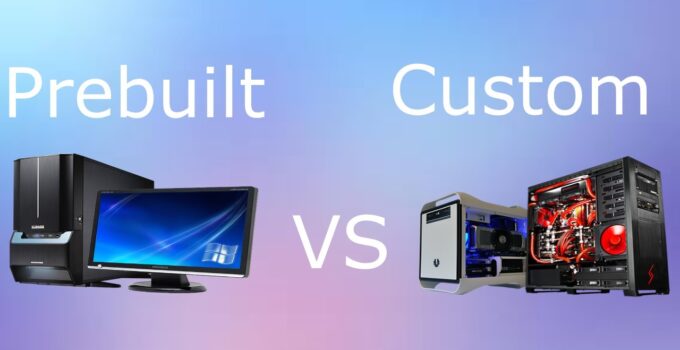Technology has allowed users to access computing power and versatility like never before. The choice between a custom-built and a prebuilt PC is still important, even in the rapidly developing field of computing. While both options are quite good, it can still be quite difficult to decide between them.
Both have advantages and disadvantages, so picking one will ultimately determine the user’s values. The user should consider the PC’s CPU, GPU, RAM, and many other factors before purchasing or assembling a system. If you need help deciding between a custom-built and a prebuilt PC, this article will compare custom-built vs. prebuilt PCs in depth to help you decide which one to purchase.
Pros and Cons of Custom-built PCs
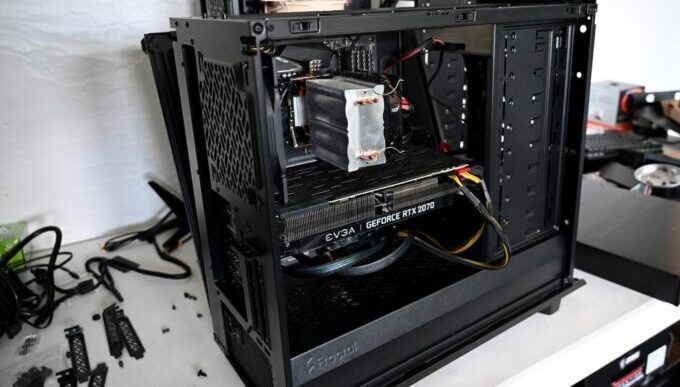
Source: voltcave.com
Pros
Customization
The opportunity to fine-tune a computer’s performance to your unique specifications is arguably the most significant benefit of building a PC from scratch. You may choose anything from the CPU to the video card to ensure it fits your needs perfectly. The user can customise the Processor, graphics processing unit (GPU), memory (RAM), and storage.
This customisation allows you to get the most out of your PC in the ways that matter to you most, be it gaming, content production, or data processing. You always have the option to choose PC peripherals and components that suit you and your preferences the best.
Not only that, you even get free-hand choosing the store to make all the purchases from. You might even want to take a look at Britain Reviews to find trusted and reliable tech stores and see what other experienced users say about those stores.
Better performance and Quality
Custom-built PCs are often more potent than prebuilt ones. The reason is that you can handpick high-quality components specifically tailored to your needs. Overheating is less of a concern with custom-built computers because of the more excellent cooling methods that are possible. RGB lighting, case layouts, and cable management may all be modified to suit your preferences.
Future-proofing
Custom-built computers have much room for future upgrades. You don’t have to buy a whole new computer if you’re willing to stay up with the times by upgrading specific parts like the graphics card or the RAM.
Easy repair
Fixing custom-built PCs is more manageable, as knowing each portion of a PC you build makes it easier to detect when it fails. Purchased computer components often include spare parts that prebuilt PCs do not. These extra parts can prevent costly repairs or tech support visits.
Cons
Compatibility issue
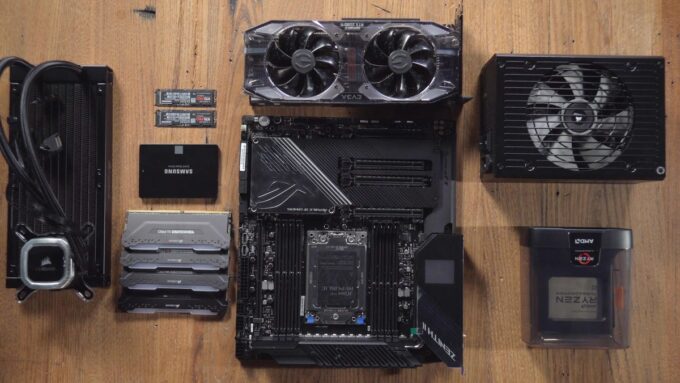
Source: cnet.com
While building a PC, you must get compatible parts. The chassis, fans, and other components must meet specific requirements for the final product to perform correctly. Buying parts without testing compatibility could result in a GPU that doesn’t fit your case or a motherboard that doesn’t support your CPU or RAM. Make sure the components are compatible before ordering!
No prompt assistance
Building your computer is exciting and gratifying, but it can be difficult for those without experience. A damaged pin or snapped wire can harm expensive components; all it takes is a little carelessness on the user’s part. Even the most seasoned PC builders can make a mistake now and then. The good thing is that many informative guides will show you what to do.
Demanding in terms of time and skill
It’s a complex process that can overwhelm beginners. Putting together a custom computer is a process that takes both time and technical know-how. A lack of experience might make the process easier, raising the risk of incompatibility or component damage.
Cost
Building your PC from scratch can get pricey, especially if you want to use top-tier hardware. Due to shipping and minimum order requirements, buying components is more expensive. However, you can also build a budget-friendly custom PC if you are willing to sacrifice some performance.
Warranty Issues
You are accountable for hardware issues or failures because you built the PC yourself. Problems can be more challenging to resolve if the warranties for individual components are not uniform. It might be a pain to coordinate warranty claims with multiple manufacturers.
Pros and Cons of Prebuilt PCs
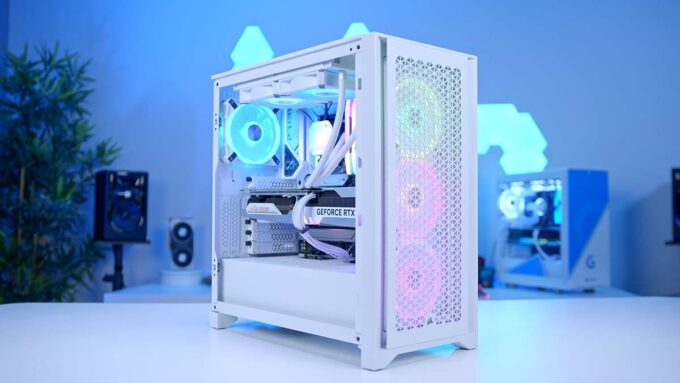
Source: geekawhat.com
Pros
Turnkey solutions
Computers that have already been prebuilt are turnkey solutions. It’s play and plug. There’s no need to spend time researching and purchasing components. Those who value simplicity over the technical challenges of building their system would like this feature extensively.
Warranty and Technical Support
Most prebuilt PC builders also provide technical support and comprehensive product warranties. As a result, you can direct any inquiries or concerns to a single location. This feature eliminates DIY repairs and gives users peace of mind.
Cost-effective and time-saving
Prebuilt computers can save you time, effort, and money by eliminating the need to source parts and assemble a computer from scratch. The final price of prebuilt computers is sometimes lowered because manufacturers can save money by purchasing components in bulk.
Because of this, retailers may provide prebuilt computers at steep discounts that are difficult to match with custom PC construction. These are your best bet if you need a computer quickly and need it to work.
Cons
Limited configuration and customization
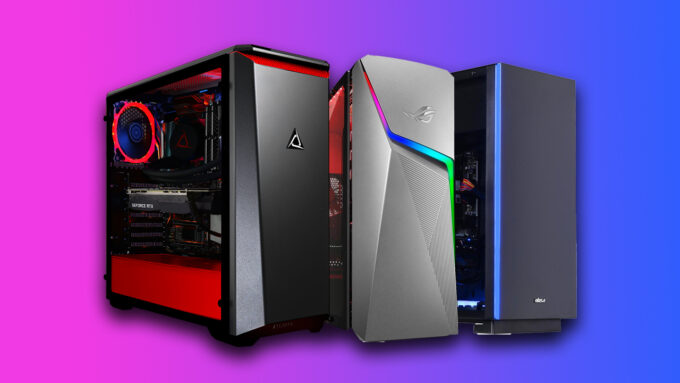
Source: gamespot.com
Prebuilt PCs come with pre-determined components, which limits customization options. This limitation can frustrate users who want complete control over their computer’s performance and aesthetics. Even with several setup options, not all may meet your needs.
Substandard parts
Prebuilt computers typically feature lower-quality components that cannot keep up with more expensive alternatives. Producers of prebuilt computers keep costs down by placing cheaper parts in less vital portions of the PC.
Because of their critical role in computing performance, prebuilt computers place particular emphasis on central processing units and graphics processing units. Yet, other parts like the power supply or hard drive could be poorer.
Less opportunity to upgrade
Upgrading prebuilt PCs can be challenging, as they’re only sometimes designed for easy component swaps. Because of this, you may be less able to adjust to changing requirements in the future.
Conclusion
Both custom-built and prebuilt PCs have their own set of advantages and disadvantages.
Your priorities, technical knowledge, and budget will determine whether you use a custom-built or prebuilt PC.
A custom-built PC may be the way to go if you want complete customisation and top-of-the-line performance. However, a prebuilt PC may be a better option if you’re looking for convenience, cost-effectiveness, and warranty coverage. Ultimately, the choice comes down to your personal needs and preferences.
Once you get the PC of your choice, it is time to begin gaming sessions and delve into the depths of virtual worlds. Luckily, we made a guide on the best free PC games that you can enjoy in short sessions. Happy gaming!

